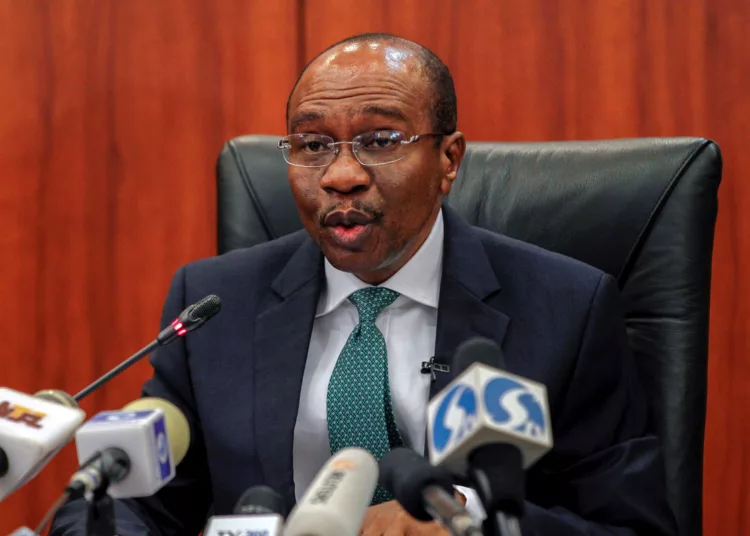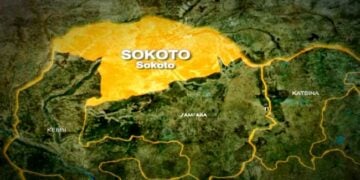To further boost non-oil dollar inflow into the country commercial banks in Nigeria have agreed to lend at least N500 billion to exporters every year, starting from 2023, as the Central Bank of Nigeria (CBN) said foreign exchange repatriation through its RT 200 programme is expected to reach $2 billion by the end of this year.
The agreement by the banks to increase lending for export purposes was reached at the end of the Bankers Committee Retreat yesterday in Lagos. Speaking with journalists at the end of the meeting, the governor of the CBN, Godwin Emefiele also noted that as against its earlier “threat” to banks that they will have to sourcing for foreign exchange to meet their customers need, the CBN will continue to supply dollar to the market.
Emefiele noted that the Bankers Committee which is made up of chief executives of banks, regulators and stakeholders in the financial industry had at the end of the meeting decided that “the entire banking industry must grant at least a minimum of N500 billion in loans to export oriented companies that will generate measurable export receipts.”
He explained that the N500 billion will be in addition to the several facilities which are already directed at the non-oil export industry, noting that the banking industry has contributed tremendously to the progress recorded by the RT 200 initiative.
“We are happy that we are seeing the repatriation that has resulted in almost $2 billion coming in this year. We are saying we draw the line and that every year, the banks put together are committed that they will grant export loan facilities to the tune of at least N500 billion which the central bank will graduate among the banks.
“The CBN will come up with modalities where it will insist that bank A should grant a minimum of X amount in export loans and naturally the big banks will have to take a bigger share this pie. The large banks will take large share and the smaller banks will take smaller share.
“This is intended to to further stimulate export financing and also encourage export of goods out of the country. So you can generate export proceeds in an exponential way. That will eventually be high that the export proceeds from the non-oil sources will be high to the point where after some time it relieves the CBN of the pressure that goes to finding dollars to meet the import needs of both the banks and their customers.”
Meanwhile, he said the CBN through the RT 200 programme which is targeting achieving $200 billion foreign exchange inflows over the next three to five years have recorded $1.534 billion between February and September this year from processed non-oil exports.
“During the six weeks in February and March when the programme started and rebates of N65 were being given, export proceeds or repatriation that earned rebate was about $62 million. During the second quarter export proceeds repatriation that earned rebate was about $622 million and in the third quarter we saw almost about $850 million of export proceeds that earned rebate.
“Let’s not forget the rebate is only meant for processed goods. So by the time we add both processed and unprocessed goods like unprocessed cocoa and cashew to the processed goods, we actually ran into almost $1 billion during the third quarter and we are beginning to think that we should be able to continue to ramp up. We are looking hopefully for the fourth quarter. We hope that we should be able to hit a billion dollars in export proceeds and repatriations that will qualify for rebate.
“Recall that in the course of the year before we started the RT 200, the central bank had actually threatened the banks that they must begin to source their own forex to meet the needs of their customers and not entirely rely on central bank sources. But seeing the progress that has been made so far, we’re talking about $62 million plus $622 million plus $850 million, we are talking of almost $2 billion so far.
“We think that with the good progress and on the basis of the progress that we have made so far, the CBN will continue to support the market with foreign exchange, albeit as hard as it may be. We will continue to support the market while the banks themselves continue to ramp up their own sources of non-oil export that can earn forex through repatriation which they can use to fund the needs of their customers. So that is one good news for those who are asking me are you stopping are you stopping? I’m sure this is the information that you’d like to hear.”
CBN Cashless Policy Creates 1.4m Agent Jobs
Meanwhile, the cashless policy of the Central Bank of Nigeria, introduced 10 years ago has witnessed significant growth, brought stability to the financial system and created at least 1.4 million jobs for agents Aishah Ahmad, Deputy Governor, Financial System Stability at the CBN stated this while facing the screening panel of the Senate Committee on Banking, Insurance and Other Financial Institution. The committee led by its chairman; Sen. Uba Sani is screening two CBN deputy governors who were renominated by President Muhammadu Buhari for second terms at the central bank.
The president nominated Aishah Ndanusa Ahmad and Edward Lametek Adamu, the Deputy Governor, Corporate Services.
In her presentation to the committee, Ahmad said the directorate was responsible for ensuring a safe and sound financial system and credible efficient payments system, a core mandate of the CBN.
Giving an overview of the cashless policy, she said Nigerians have continued to embrace the cashless policy by using electronic channels for their transactions, whilst the Nigerian payments system and telecommunications infrastructure continued to develop.
The Deputy Governor spoke of the significant growth in variety and number of financial access points expanding from just bank and MFB branches to include agents. She stated that agents could perform an increasing variety of transactions including cash in cash out, bill payments and even account opening. Under the CBN’s SANEF initiative, agent network had grown to 1.4m agents which agents available in every local government in Nigeria. She stated that whilst the growth in the network was not even, there was representation in every state.
She added that in furtherance of its mandate to develop an efficient payments system, the CBN had continued to license more financial institutions including allowing the telcos to participate in financial services through the Payment Service Bank license, recognizing their extensive technology platforms and wide agent network.
The Deputy Governor reiterated the various options open to Nigerians to perform financial transactions including mobile money, USSD, Internet banking, mobile apps, e naira, agents and mobile POS etc. All of these would ensure that Nigerians would seamlessly adapt to the cashless policy to enable financial inclusion and economic growth.
In her closing remarks, she pledged the CBNs commitment to ensuring that Nigerians in the rural areas and informal sector are not disenfranchised, stating that the Bank would be flexible in its monitoring and implementation of the new cash withdrawal limits. She reminded the committee that indeed the cashless policy had been amended in the past in response to feedback from stakeholders and that the January 9 date was set to enable such engagement and feedback be held.
Senator Sani Musa of Niger East Senatorial zone, a member of the screening committee related a message from the people of Niger state stating.
He said, “I bring a message from the people of Niger state concerning our daughter and sister Aishah Ahmad. We are Proud of Aishah and consider her a jewel the financial system has benefitted from her varied experience in the banking sector.
“She has put her critics to shame as they are unable to find her wanting in any area. She has done us proud and we thus pray the committee to grant her an opportunity to continue to serve the Nigerian economy.”
Senator Danjuma Goje also relayed a message from the people of Gombe state stating that they would like to simply commend their son, Edward Adamu for his performance and request that he and his colleague be asked to take a bow.
The Chairman of the Committee put the motion to a vote and it was unanimously carried.
The Senate Committee on Banking, Insurance & Other Financial Institutions is expected to present its report to a full plenary session of the senate this week.





